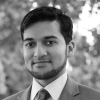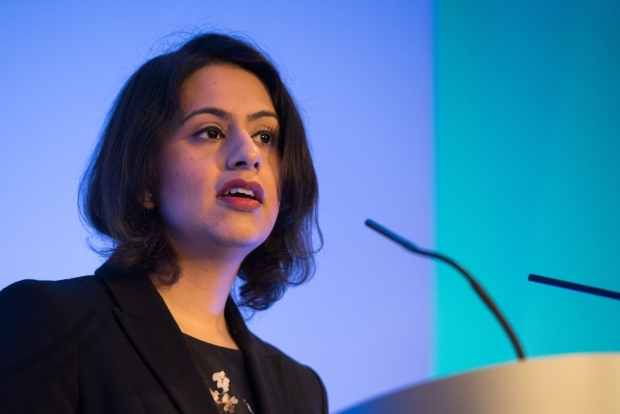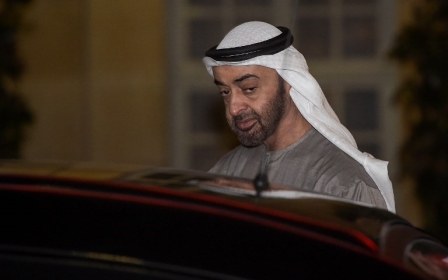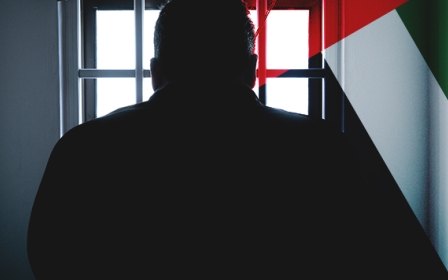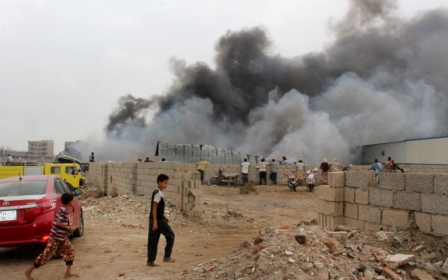UAE's forum for 'promoting peace' is another cynical PR initiative
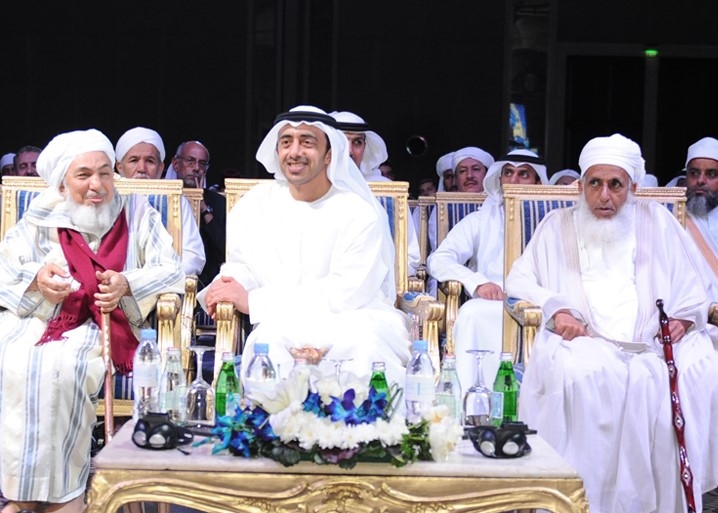
The gruesome assassination of Saudi journalist Jamal Khashoggi two months ago has put pressure on Western governments to stop supporting the destructive agenda of Saudi Arabia’s Crown Prince Mohammad bin Salman.
The most powerful man in Saudi Arabia is viewed by the world's leading intelligence agency as ultimately responsible for dispatching the team of hit men - known as the Tiger team - to lure Khashoggi to his death, dismemberment, and subsequent dissolving in acid in Istanbul.
But as observers of the region know well, Saudi Arabia’s crown prince is in many ways simply the impetuous protege of the equally dangerous, but far more sophisticated, crown prince of the UAE, Mohammad bin Zayed. As noted recently with eloquent concision by Carnegie's Richard Sokolsky and Daniel R DePetris, the UAE has been engaged in similarly murderous and reckless behaviour as the Saudis, albeit with far more effective PR.
A savvy PR campaign
Whether engaged in brutal wars like the one in Yemen with hundreds of thousands displaced and tens of thousands killed, or crushing dissent and political liberties at home, the UAE government is no better than its neighbour next door. Yet its savvy PR means that such matters frequently fall below the radar of international observers.
New MEE newsletter: Jerusalem Dispatch
Sign up to get the latest insights and analysis on Israel-Palestine, alongside Turkey Unpacked and other MEE newsletters
One such PR initiative meets this week for its fifth annual conference, namely the UAE’s Forum for Promoting Peace in Muslim Societies (FPPMS) whose official patron is the country’s foreign minister, Abdullah bin Zayed. The forum, established in 2014 as a direct counterweight to the Arab revolutionary demand for more accountable government in the region, is headed by a learned Saudi-based scholar and one-time Mauritanian politician, Abdullah bin Bayyah.
The UAE’s involvement with religion is nakedly instrumental to its maintaining political power and influence in the region
Accordingly, at the inaugural forum, Bin Bayyah spoke of the religious obligation for subjects of Muslim states to be obedient to their rulers, while highlighting that calling for democracy in the Arab world was "essentially a declaration of war".
Bin Bayyah’s services to the UAE have likely made him the Emirates' most sought-after Islamic scholar. He has recently been placed at the head of a newly formed Emirates Fatwa Council that presents itself as a promoter of "moderate" Islam.
Both institutions form part of the UAE’s armoury for religious legitimation in a part of the world where religion is an integral part of the public sphere. As I have briefly discussed elsewhere, the UAE’s involvement with religion is nakedly instrumental to its maintaining political power and influence in the region.
As Machiavelli pointed out 500 years ago, religion is a valuable tool in the hands of a prince, and the UAE’s princes seem deeply aware of this fact. Bin Bayyah's second in command at the forum is the Californian scholar Hamza Yusuf, who has been described by the Guardian as "arguably the West's most influential Islamic scholar".
Both scholars have a long record of public engagement on religious matters in both the Middle East and the West. They both now serve at the pleasure of the UAE's princes, using their religious profiles to sell the UAE's notion of a programme of religious moderation to a global audience.
Selective outrage
The forum's political instrumentalisation may be illustrated by considering the selective engagement of its leaders with public affairs. On 31 October, Yusuf posted on his Instagram account a letter of solidarity with the Jewish community after the horrific attacks on the synagogue in Pittsburgh four days earlier. The letter was signed by Bin Bayyah, in his capacity as the president of the FPPMS.
Yet, after the furore over the Khashoggi murder, which had turned the world’s attention once again to the Saudi-UAE bombing campaign in Yemen, the forum for "promoting peace" responded with characteristic silence. Indeed, there is no record of any criticism of the long-running Yemen war by the forum probably because both initiatives are funded by the same government.
What matters for the forum is not averting what the UN has described as the world’s worst humanitarian crisis in one’s own backyard, but rather condemning only politically expedient crimes such as terrorism halfway across the world.
Through state-sponsored media, the Emirates have made clear from the very beginning that they were entirely supportive of the Saudis in the face of international pressure after the Khashoggi killing. The forum's patron, Abdullah bin Zayed, published a tweet eight days after Khashoggi’s murder, declaring that he resolutely stood by Saudi Arabia.
Britain's mixed messages
At the same time as one arm of the Emirati state handed down a life sentence last month to a British PhD researcher, Matthew Hedges, precipitating an apparent diplomatic crisis with the British Foreign Office, the same FCO was ostensibly engaged in promoting "freedom of religion [and] belief for everyone, everywhere" in partnership with the UAE foreign ministry’s Forum for Promoting Peace.
According to the forum’s conference timetable, on Wednesday morning, Bin Bayyah will share a platform with his frequent companion at such events, the Saudi politician Abdul-Karim Issa. Also on the platform will be the controversial British political appointee, Sara Khan, hired to lead the UK government's Commission for Countering Extremism.
No doubt, there will be no discussion of either Khashoggi's killing, nor his right to freedom of belief. Nor should we expect any condemnation of the ravages of the Yemen war in this year’s efforts at promoting peace.
Yet, if the British Foreign Office is serious about the promotion of freedom of religion and belief, it should not help the UAE maintain its facade of peace promotion. Rather, it should recognise that Mohammed bin Salman's recent misadventures have been, in no small measure, a consequence of the Emirates' lobbying efforts in Washington.
If such PR initiatives claiming to promote the values of peace and freedom of belief are to be viewed as anything other than cynical politicking, participants in such conferences, be they scholars or friendly Western governments, must talk about the elephant in the room: that the government sponsors of these initiatives are the most egregious offenders against such values.
- Usaama al-Azami is Departmental Lecturer in Contemporary Islamic Studies at the University of Oxford. He completed his PhD in Near Eastern Studies at Princeton University. His research critically examines contemporary Islamic reform and the politics of the ulama. He completed his BA in Arabic and Islamic Studies at Oxford University and his MA at Princeton. He may be followed on Facebook and Twitter (@DrUsaama).
The views expressed in this article belong to the author and do not necessarily reflect the editorial policy of Middle East Eye.
Photo: UAE Foreign Minister Mohammed bin Zayed (centre) and the Forum for Promoting Peace head Abdullah bin Bayyah, left (peacems.com)
Middle East Eye delivers independent and unrivalled coverage and analysis of the Middle East, North Africa and beyond. To learn more about republishing this content and the associated fees, please fill out this form. More about MEE can be found here.


